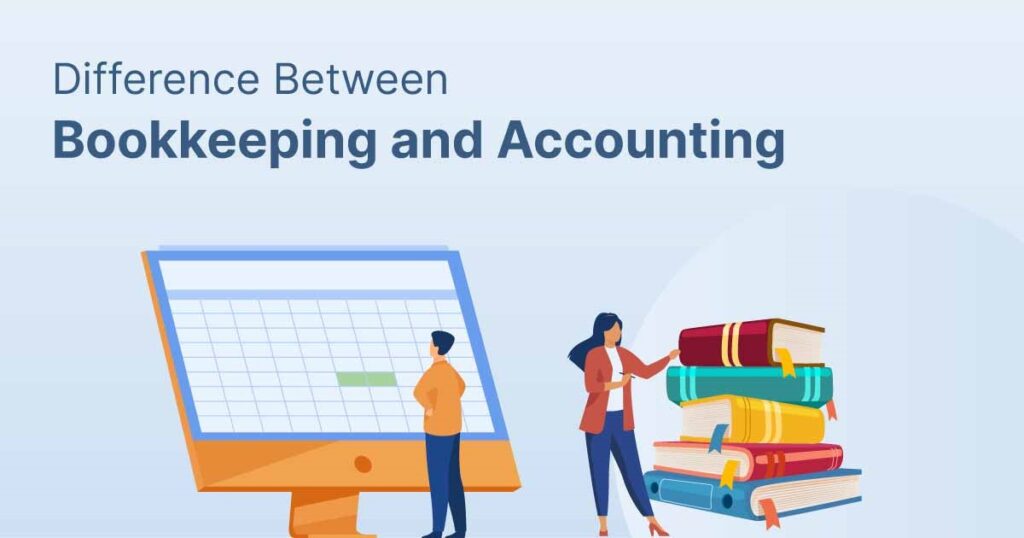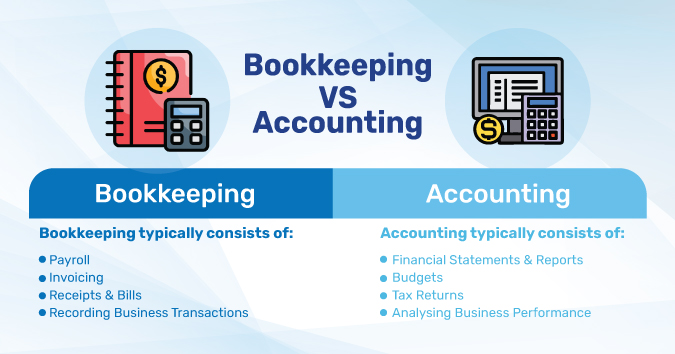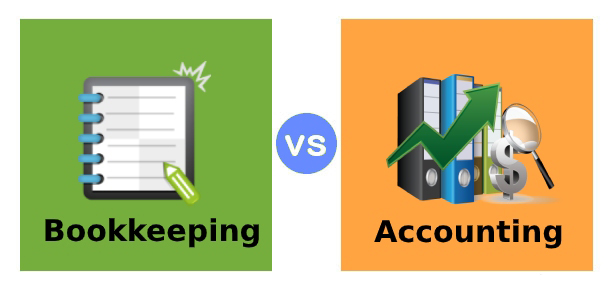Overview of Bookkeeping and Accounting
Definition of Bookkeeping
Bookkeeping is the systematic recording of financial transactions in a business. Think of it as the foundation of a house: it provides the structure and support for everything else that comes afterwards. Traditionally, bookkeeping involves maintaining a journal and ledger to track income and expenses, but today, it often incorporates sophisticated software that simplifies these processes.
Bookkeepers are responsible for:
- Recording daily transactions
- Maintaining accurate financial records
- Reconciling bank statements
- Preparing financial reports for management
For instance, imagine a small café. The bookkeeper meticulously records each sale, tracks vendor payments for supplies, and ensures that all transactions are logged. This attention to detail helps the café owner understand how much profit they are making and whether they need to adjust prices.
Definition of Accounting
While bookkeeping is about recording transactions, accounting takes a broader perspective by analyzing and interpreting these financial records. Accounting provides insight into the financial state of the business, helping stakeholders make informed decisions. It often involves preparing complex financial statements such as the balance sheet, income statement, and cash flow statement.
Accountants perform various tasks, including:
- Analyzing financial data
- Preparing tax returns
- Advising on financial strategies
- Ensuring compliance with regulations
Consider a growing tech startup. The accountant evaluates the financial health of the business by analyzing the data recorded by the bookkeeper. With their expertise, they identify trends, forecast future revenues, and offer advice on how to manage funds effectively.
In summary, while bookkeeping lays the groundwork with basic data entry and record-keeping, accounting takes those records and transforms them into actionable insights that guide businesses toward growth and stability. This distinction highlights the importance of both functions in the financial ecosystem of any organization.

Key Differences Between Bookkeeping and Accounting
Role and Scope
Understanding the differences between bookkeeping and accounting requires an examination of their roles and scopes within a business.
Bookkeeping primarily focuses on the day-to-day financial transactions. It’s about maintaining an accurate and organized record of what happens financially in a company. This task is often seen as a more clerical role, where bookkeepers ensure every penny is accounted for.
In contrast, accounting encompasses a broader scope. It not only includes bookkeeping but also involves analyzing, summarizing, and interpreting those records. Accountants provide insights and strategies based on this analysis, guiding business decisions. Their role can be thought of as that of a coach, helping the team (the business) understand the game (the financial circumstances) and make smart plays to win.
To illustrate:
- Bookkeeping :
- Involves daily tasks like recording sales, expenses, and purchases.
- Ensures compliance with basic financial regulations.
- Generates reports that reflect the organization’s daily activities.
- Accounting :
- Provides a big-picture overview through financial statements.
- Analyzes trends, forecasts, and contributes to strategic planning.
- Helps businesses make informed decisions regarding budgets and investments.
Focus and Analysis
When considering focus, bookkeeping tends to be transactional and centered around accuracy. Its purpose is straightforward: record and maintain financial data. However, accounting shifts its focus to analysis and interpretation. An accountant will evaluate the data from the bookkeeping process to offer insights that answer important questions, like:
- How well is the business performing?
- Are expenses exceeding expectations?
- What are the financial risks involved in future investments?
Think about it like cooking. A bookkeeper is like a sous chef meticulously measuring ingredients and preparing items for a dish. Meanwhile, the accountant is the head chef who combines those ingredients, adjusts flavors, and presents a well-prepared meal to the diners, showcasing the kitchen’s skills.
In summary, the key differences between bookkeeping and accounting lie in their roles and focus. Bookkeeping is essential for accurate record-keeping, while accounting is crucial for strategic financial management. Recognizing these distinctions helps businesses effectively utilize both areas for their financial success.

Importance of Bookkeeping and Accounting in Business
Bookkeeping Importance
Bookkeeping forms the bedrock of any successful business. Without it, the financial chaos can lead to misunderstandings and missed opportunities. Just think about it—when a business keeps accurate records of its transactions, it promotes a higher level of organization and clarity.
Here’s why bookkeeping is crucial:
- Accuracy : Regular recording of transactions reduces errors in financial statements.
- Financial Tracking : It allows businesses to monitor income and expenses, making it easier to assess profitability.
- Compliance : Accurate records are essential for fulfilling tax obligations and avoiding penalties.
Consider a local bakery. The bookkeeper diligently logs each sale and tracks supply costs. By doing so, the owner can easily identify peak sales seasons and budget for ingredients effectively. This insight not only helps with day-to-day operations but also supports long-term strategic planning.
Accounting Importance
While bookkeeping lays the groundwork, accounting elevates a business’s financial strategies. The importance of accounting cannot be overstated, as it transforms the raw data from bookkeeping into valuable financial insights that drive business decisions.
Here are key points about accounting importance:
- Decision-Making : Accountants analyze financial data, enabling business leaders to make informed decisions about investments, expenses, and growth strategies.
- Performance Measurement : With detailed financial statements, businesses can evaluate their performance against goals and benchmarks.
- Risk Management : Proper accounting helps identify financial risks and opportunities for improvement.
To illustrate, imagine a startup tech firm that’s seeing a surge in sales. The accountant can assess the financial data to highlight trends, predict cash flow needs, and recommend reinvesting profits wisely. This informed approach can significantly enhance the company’s growth trajectory.
In conclusion, both bookkeeping and accounting play indispensable roles in a business’s success. Bookkeeping ensures accurate records, while accounting leverages those records to provide insights that shape future strategies. Together, they create a framework for not just surviving but thriving in a competitive marketplace.
Key Responsibilities in Bookkeeping and Accounting
Bookkeeper Responsibilities
The role of a bookkeeper is vital for maintaining the financial health of a business. They handle the nitty-gritty of daily transactions and work diligently to ensure that every financial detail is accurately recorded.
Here are some of the key responsibilities of a bookkeeper:
- Daily Transaction Recording : Bookkeepers meticulously document all income and expenses, ensuring data is entered in real-time to maintain accuracy.
- Bank Reconciliation : They regularly reconcile bank statements with internal records, helping to detect any discrepancies early on.
- Invoicing : Bookkeepers prepare and send out invoices to clients, managing accounts receivable effectively.
- Financial Reporting : They generate periodic financial statements, such as profit and loss statements, that provide a snapshot of the business’s financial position.
For example, imagine an e-commerce business that sells artisanal products. The bookkeeper tracks every sale, records shipping costs, and reconciles daily transactions with the bank. This diligence ensures the owner has an accurate daily overview of how much money is flowing in and out.
Accountant Responsibilities
On the other hand, accountants build upon the foundation laid by bookkeepers and delve deeper into the financial data. Their responsibilities require a different skill set, focusing on analysis and strategic planning.
Key responsibilities of an accountant include:
- Financial Statement Preparation : Accountants prepare detailed financial reports, such as balance sheets and income statements, that help stakeholders understand the financial health of the business.
- Tax Planning and Filing : They ensure compliance with tax laws and regulations, preparing and filing tax returns efficiently to minimize liabilities.
- Budgeting and Forecasting : Accountants analyze past financial data to aid in budgeting and future forecasting, helping the business plan for growth.
- Advice on Financial Strategies : They provide strategic advice based on financial analysis, guiding businesses in investments and expenditure.
Take, for instance, a manufacturing company planning to expand. The accountant evaluates financial data to provide insights on whether the expansion is feasible and how it can be financed. They can also highlight potential pitfalls, helping to mitigate risks.
In summary, while bookkeepers focus on detailed record-keeping and daily transactions, accountants play a crucial role in analyzing that data to guide business strategies. Both positions are essential for healthy financial management in any organization, ensuring a strong foundation for success.

Tools and Technology in Bookkeeping and Accounting
Bookkeeping Software
In today’s digital age, bookkeeping is significantly enhanced through specialized software. These tools simplify and streamline the bookkeeping process, allowing bookkeepers to focus on accuracy rather than getting lost in manual data entry.
Some popular bookkeeping software options include:
- QuickBooks : Known for its user-friendly interface, QuickBooks allows small businesses to manage invoices, expenses, and even payroll efficiently.
- Xero : This cloud-based solution is excellent for collaboration, allowing multiple users to access real-time financial data.
- FreshBooks : Best suited for freelancers and service-oriented businesses, FreshBooks offers fantastic invoicing features and time-tracking capabilities.
Consider a graphic design business. The bookkeeper uses QuickBooks to manage client invoicing and keep track of expenses related to software subscriptions and equipment purchases. This not only saves time but also provides the business owner with immediate visibility into their financial health.
Accounting Software
When it comes to accounting, the software takes a more comprehensive approach, encompassing not just record-keeping but also advanced financial analysis, reporting, and strategic planning capabilities.
Key features to look for in accounting software include:
- Financial Reporting : The ability to generate profit and loss statements, cash flow reports, and balance sheets that can be customized to reflect specific business needs.
- Budgeting Tools : Tools that help assist in the budgeting process and analyze variances from projected figures.
- Tax Compliance Features : Safeguards that ensure compliance with local and national tax regulations, making tax filing a lot easier.
Popular accounting software includes:
- Sage Intacct : Known for its robust reporting and financial management features, well-suited for medium to large businesses.
- Zoho Books : Offers strong automation capabilities and integration with other business applications, ideal for small to medium enterprises.
- NetSuite : A comprehensive cloud-based solution that provides a complete view of financials, inventory, and CRM for larger organizations.
For example, a mid-sized retail chain may use Sage Intacct to track performance across multiple locations. The accountant can easily generate reports that assess the profitability of each store, enabling them to make informed decisions about inventory and staffing.
In summary, both bookkeeping and accounting software play vital roles in modern financial management. These tools not only save time but also significantly enhance accuracy and provide invaluable insights, empowering businesses to thrive in a competitive environment. As technology continues to evolve, the integration of these tools in bookkeeping and accounting will only deepen, further driving efficiency and reliability.
